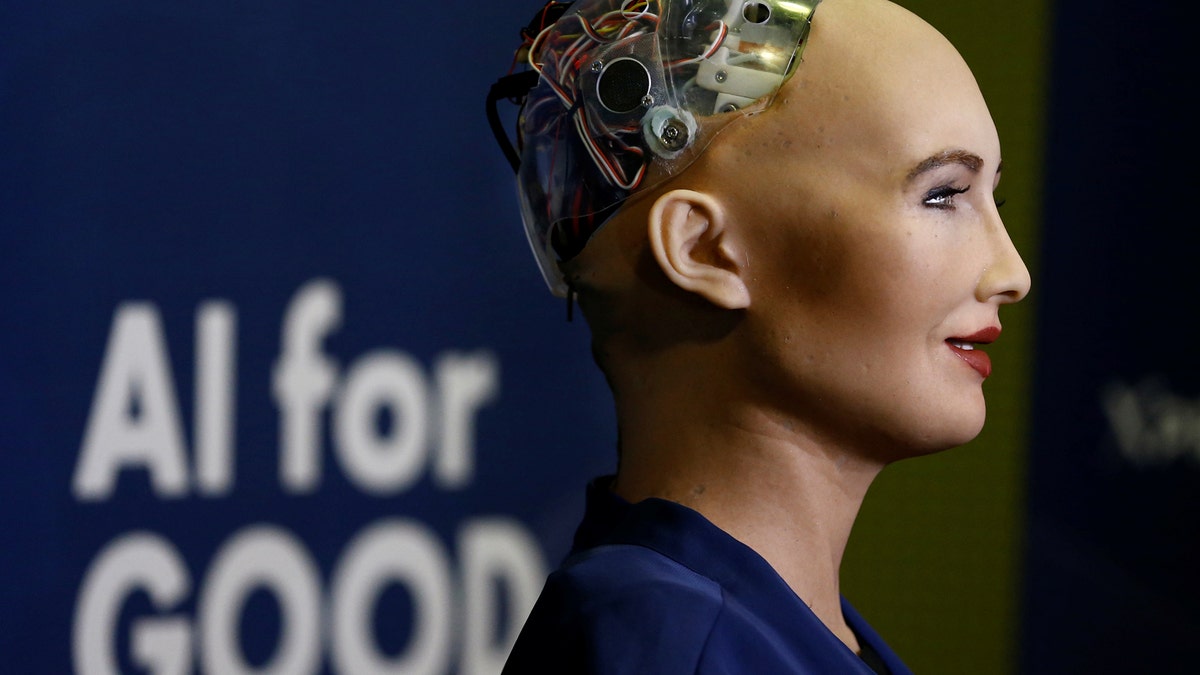
File photo: Sophia, a robot integrating the latest technologies and artificial intelligence developed by Hanson Robotics is pictured during a presentation at the "AI for Good" Global Summit at the International Telecommunication Union (ITU) in Geneva, Switzerland June 7, 2017. (REUTERS/Denis Balibouse)
Standing on stage in front hundreds of policymakers, academics, and industry leaders in a United Nations conference room on Wednesday, Margaret Chan admitted shes probably the least knowledgeable person present on the topic of artificial intelligence.
Chan, an expert in her own right as director general of the World Health Organization, was nonetheless chosen to open apanel of the first inaugural AI for Good Global Summit, a UN-hosted event that hopes to guide AI development with ethical, social, and sustainable goals in mind. And she raised some important issues about how this technology will effect society.
Despite her claim to ignorance, Chan is relatively optimistic about emerging technologiesand theirpotential health benefits. She flashed a wearable that tracks her daily steps and admitted she was yet to meet her goal.
Addressing the crowd, she asked, What gadgets could you create to make individuals make healthy choices and live healthier lives?
More From Digital Trends
Still, Chan voiced a few points of caution during her speech. Shepointed out that medical conditions are often complex, while diagnosing them can require a context and intuition exclusive to humans. AI may stand in for some medical roles but is far from being able to replace human interactions.
But her more pressing comments addressed issues of the developing world which she believes we often miss in the developed world. Namely, a lack of resources.
Id be hard-pressed to recommend AI for health care in regions where standard machines dont work for want of electricity, she said. As a follow-up, shequestioned the value of an early cancer diagnosis in a developing region if treatment there is unavailable.
Meanwhile data, which is hoarded by governments and companies, and is widely regarded as todays most valuable resource, is lacking in developing regions.
The next question then is how emerging technologies -- particularly AI -- can bring these regions up to speed. How can AI help optimize infrastructure and transportation channels to move medical goods more efficiently? Could it predict political and economic eventsthat disrupt development? How might AI improve education, better training doctors to treat their patients?
Experts think AI could solve the world's most complicated issuesand it's what these few hundred delegates have met in Geneva for three days to discuss. At the summit they'll explore the UN's 17 sustainable development goals -- among them, ending things like poverty, hunger, and inequality -- to consider how AI can be used to make our future better for everyone.
Over the next couple months we'll reviewsome of the most innovative and disruptive ideas to come out of the conference -- from attainable short-term goals to moonshots -- diving deep into complex issuesthat will shape or break our world.
Stay tuned.








































